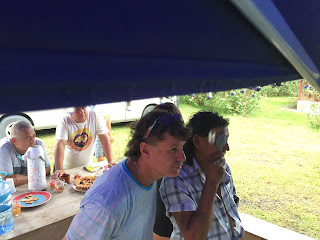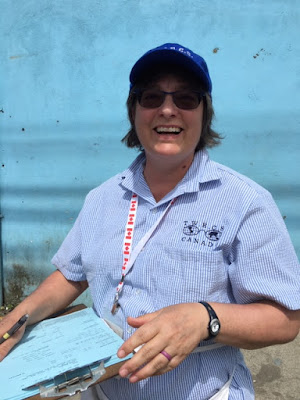Yesterday we wrapped up our clinic in La Carpio, and headed 4 hours east to a much more remote region of Costa Rica to serve the indigenous communities of the Cabecar.
The time we spent in La Carpio offered me a valuable life lesson. This community was originally founded by Nicaraguan refugees and is regarded as the “worst ghetto in Costa Rico”, -a description that created some anxiety in my mind before we left Canada. Let’s just say this, here are the faces of a couple refugee migrants living in this ghetto:
There has been so much in the news lately about refugees and mass human migration-and these groups are often cast as criminals, gang members, and poor people bringing disease. It’s too easy to paint with a broad stroke, and not see people as individuals. But of the hundreds of people we have served in La Carpio there were moms and dads with new babies, old people with very poor vision and no access to glasses, giggling teen girls, and generally hardworking, respectful people just living the life that has been put in front of them.
People are people, and except for the luck of where I was born I can totally see myself in their place. The significance of looking directly into each person’s eyes is not lost on me.
Our clinic has been set up in what is essentially a community center and this is a child’s drawing that I found hanging on the wall right beside my station:
My translator told me that it basically says ‘the heart always breaks in La Carpio’. It’s a pretty sad image for me to work beside all day, but it has been keeping my mind in the right perspective.
Here is a warmer picture from La Carpio: an elderly woman who was so happy with her glasses and new vision that she worked her way backwards through the line up to give me a hug before she left. It warmed my heart and reminds me of why these trips are such a rewarding part of my life.
Also in this picture is Marina, our team leader and one of my personal hero’s. She has done dozens of these trips all over the globe over the last 2 decades, and she told me on our way here that this trip was important to her because she felt it was time to “refuel her empathy” which had been chipped away through her day to day and practice life. What a great thought, and another good lesson. Thanks Marina and Derek for all you do to make this possible for the people of Costa Rica, and for each of the members of this team who will return home so much richer.
By Dr. Brad McDougall, BC


































